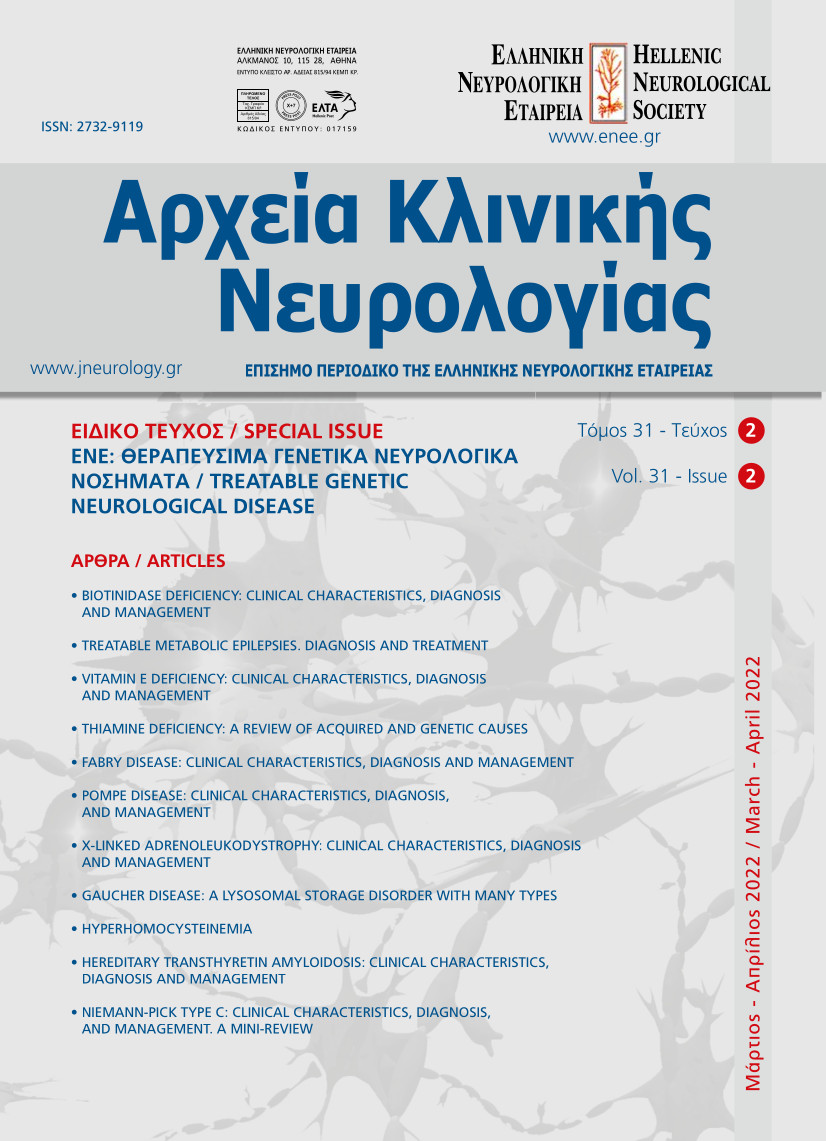TREATABLE METABOLIC EPILEPSIES. DIAGNOSIS AND TREATMENT
Περίληψη
Over 200 different metabolic disorders are prone to epileptic seizures, as the primary clinical manifestation
or with other manifestations of their clinical condition.
Most of the metabolic disorders presenting with epilepsy are diagnosed and managed in childhood.
Treatable metabolic diseases causing epilepsy are a well-defined group of all metabolic disorders, which are
amenable to adequate management aiming directly at the primary cause of the seizures and at preventing
or minimizing seizures’ complications. Treatable metabolic epilepsies are clinically important to recognize
and diagnose. Although some types of metabolic epilepsy require detailed testing for the diagnosis to be
made, other types may be diagnosed on the basis of the clinical assessment, as is the case of pyridoxinedependent
epilepsy, with seizures cessation after pyridoxine administration.
The etiological mechanism of seizures in metabolic disorders is very complex. Cofactor deficiency, accumulation
of toxic metabolites and energy deficiency are the main causes.
Administration of supplementation, early dietary interventions or other therapy options can treat metabolic
disorders and control epileptic seizures or, at least, improve outcomes.


